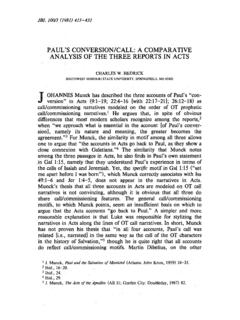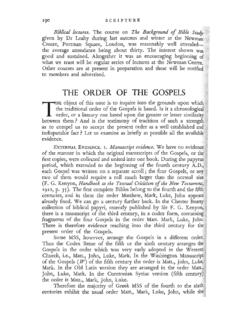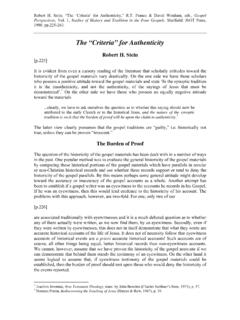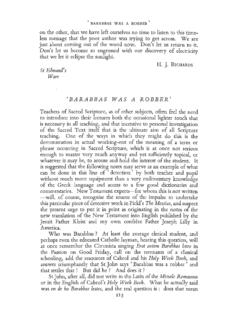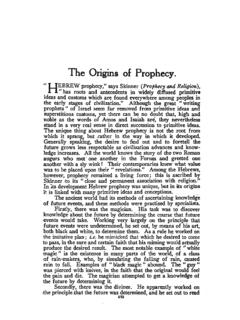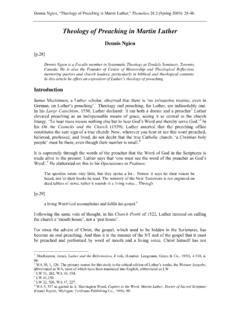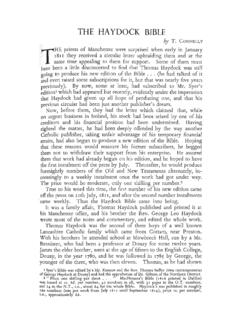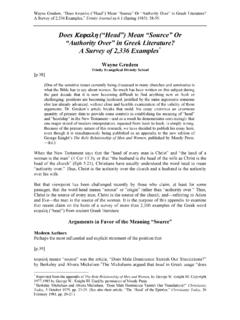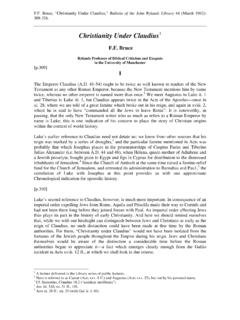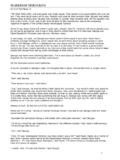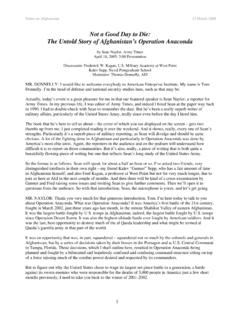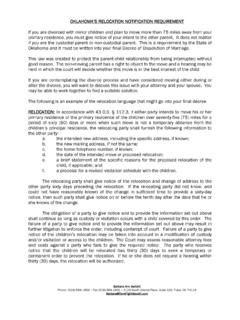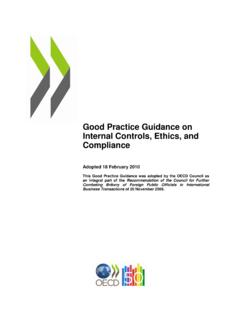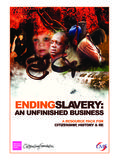Transcription of 'I HAVE FOUGHT THE GOOD FIGHT' - …
1 'I have FOUGHT THE good fight ' The actual doctrine and teaching of St Paul will always, of course, remain the primary reason for studying the speeches and writings of the great Apostle and the principal fruit to be gather~sl from this exercise. The literary study of the Apostle, however, is also a very important as well as a very interesting aspect of that attempt to get into his mind which is necessary if we would understand what he is talking about. He speaks very largely in figures and metaphors, sometimes perforce, sometimes by choice, and it would appear to be common sense that the more accurately we can understand the basic meaning of the figures he employs the more nearly shall we be able to appreciate the exact nuances of his thought.
2 And from the point of view of teaching in schools one of the most important kinds of figure and metaphor that St Paul uses is the metaphor taken from the sports and athletics of the day, of which the famous phrase which stands by way of title at the head of this article is perhaps the best known. Ton ag8na ton kalon eg8nismai wrote St Paul in this passage (2 Tim. 4:7), and all the English, French and Spanish versions which happen to be to hand-Douay, Knox, Westminster, , . ;V., Moffat, Phillips, Wand, Bible de Jerusalem, Crampon, Osty. Pirot-Clamer, Bover-Cantera-are in substantial agreement in trans-lating the famous passage as the Douay does: I have FOUGHT a good fight ; I have finished my course; I have kept the faith There are, however, two notable exceptions of detail: Weymouth and Wand both render ag8na as 'contest' and Knox translates the fmal phrase as: 'I have redeemed my pledge.
3 ' There is sufficient difference in figure here to be worth investigating for a closer approxi-mation to the imagination of St Paul as he wrote these words and to serve, perhaps, as an interesting jumping- off ground with a class of Secondary Modern or Grammar School boys for a ' project' on the sporting and athletic language and imagery of the Great Apostle. The word ag8n, on the authority of the Lexicons, undoubtedly is generic in character and so, for that matter, is the word certamen by which the Vulgate translates it. One must, therefore, have some justification, either in general context or in usage, for ' specifying' it to mean one particular type of contest as all our English versions do except Wand and Weymouth.
4 In other words, before one is justified IIO , , I have FOUGHT THE good fight in translating it in terms that make St Paul think of boxing or fighting one must be able to show that these were the forms of sport he had in his mind's eye when he wrote the phrase ton ag8na ton kalon ~g8nismai. It would be very difficult, if not quite impossible, to show this, and there are many indications elsewhere in the writings of the Apostle to suggest that ag8n for him evoked the image of the track, especially the longer races, rather than of the 'boxing-ring.' The distaste for boxing as practised in those brutal days which we should expect from him we find indicated, one might think, in the fact that he only speaks of it defmitely in passages conveying advice basically negative in character or indicative of an attitude of hostility, as in the famous passage in I Cor.
5 9, which is discussed later. In all the instances where he is advising us to positive action, when he ' specifies' the source of his metaphor he always does so in terms of the race-track, and that holds whether he uses stadion, or his more normal dromos, or ag8n itself or its derivative, ag8nizomai. 'Every ag8nizomenos,' St Paul says in I Cor. 9:25, 'refraineth himself from all things,' and Spicq, com-menting on this verse in the Pirot-Clamer Bible, points out rightly that while the actual translation may be kept generic the actual type of' contestant' in St Paul's imagination as he wrote those words was the runner, not the boxer or wrestler, since these latter did exactly the opposite of' refraining from all things,' weight being what they sought rather than the qualities that a strict training regime might produce.
6 , the lesson of renunciation and mortification will not be the same,' he says, 'if one sees in ag8niz0111eHOS a wrestler or boxer, since the training system for these athletes was entirely different. Weight, in fact, was a considerable advantage to them and so they were overfed to the point that their sheer mass and stupidity became proverbial.' In fact, that very point is made in Hebrews: " . ' . let us rid our-selves of all that weighs us down .. and run .. the race for which we are entered' (trek8men ton .. ag8na) as Monsignor Knox translates it. It would seem, then, and there is much more to support the thesis also, that, in this phrase to St Timothy, St Paul had defmitely in mind the race, and probably the longer, , endurance' type of race and not a fight in any sense except the purely (and additionally) metaphorical in which we might refer to a contest of any kind, athletic or other, as a ' fight ' or a ' struggle' in the widest possible sense of those words.
7 For vividness, if not mechanical accuracy, Weymouth would seem to be best: 'I have gone through the glorious contest,' instead of ' I have FOUGHT the good fight .' Scott (in the Moffat Commentary) has suggested 'I have played the game'! . The second phrase presents no difficulty: ton dromon teteleka is III , I have FOUGHT THE good fight , I have fmished the race' (or, perhaps, 'the course,' though that is not quite so consistent with the general Pauline use of dromos). The third member remains for discussion. As already noted, all our English and other versions cited are in substantial agreement that it means 'I have kept the faith.
8 ' Knox, however, translating from the Vulgate fidem servavi, makes it 'I have redeemed my) pledge.' A glance at the Lexicon (or at Moulton and Milligan) will make it clear that the sense thus given to fidem servavi is, in the abstract, equally permissible for t~11 pistil1 tet~r ka. Knox's reason for abandoning the usual interpretation is given in his Commentary for English Readers (voL rn, pp. 30-1, il1 loc.): 'But unquestionably a false note is struck in verse 8 if we suppose that St Paul leads off with two metaphors and follows them up with a plain statement of fact; the situation cries out for a third metaphor as a variant of the two which went before it.
9 ' If, however, our contention that the two previous metaphors refer to the race, to the one ' image' viewed from different aspects, is true it would seem that the third metaphor should again express another aspect of the same 'image' -and that is where some 'correlation' between the Scripture department, the Classics department, perhaps even the Physical Education department and the Librarian in our schools might be fruitfully invoked in the project of interesting younger readers in the writings of St Paul. Can it be objectively maintained that, at least at the time of St Paul, payment of an entry fee, returnable at least to those who ' finished the course,' was demanded in the Greek Games, especially the Isthmian Games, perhaps?
10 My own resources are dumb; they mention the usual requirements for the games in their earlier stages but are silent on the nagging suspicion in my own mind that I heard somewhere, sometime, that this was so and was one of the ' professional' intrusions into the Olympic system that fmally led to the abandonment of the Games in the fourth century If it is so, we are left with at least a conjectural translation that fits the situation and the imagery admirably: 'I have lasted the distance; I have finished the race; I have saved my entry-fee. For the rest, there is waiting for me the victor's crown.
